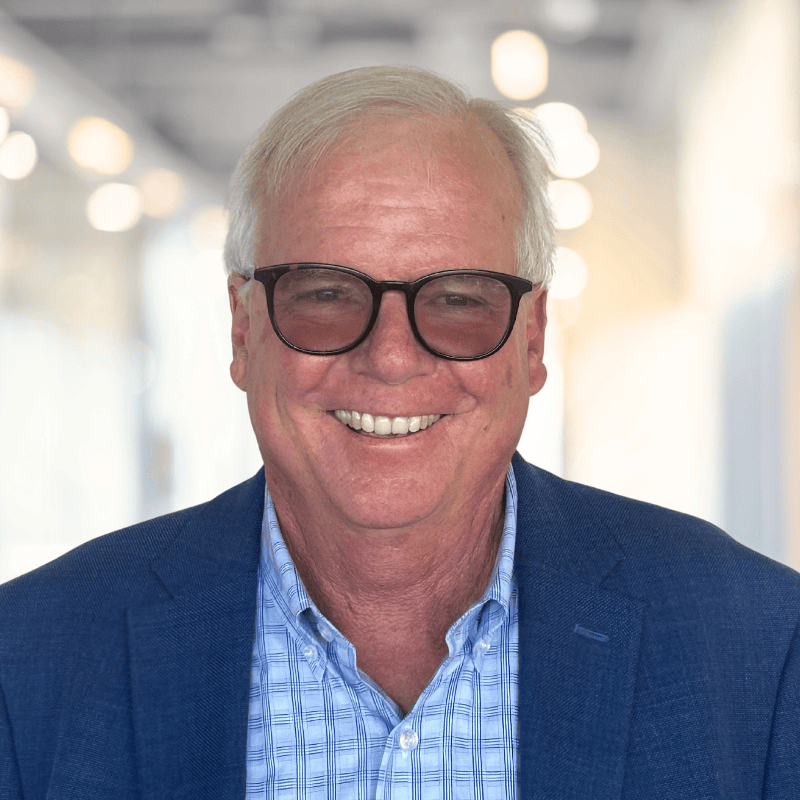Time In the Market with Scott Bondurant
Is time in the market better than timing the market? Scott Bondurant talks about how to find long-term success investing!
Listen to us On
About the Episode
We focused on the value and importance of time in the market versus timing the market, how to focus on what matters and overcome damaging behaviors, whether or not passive investing makes sense, and how to think long-term, with Scott Bondurant, Founder and CEO of Bondurant Investment Advisory.
Listen to hear a difference-making tip on how to be a permanent investor in the stock market!
You can learn more about Scott at SBondInvest.com, and LinkedIn.
Did you get anything out of this episode? Do us a solid and leave a review:
https://ratethispodcast.com/alignedmoneyshow
Learn more and engage at MoneyAlignmentAcademy.com, Twitter, LinkedIn, Instagram, YouTube and Facebook.
Buy George G a coffee (he loves coffee)
https://www.buymeacoffee.com/lifeblood
Have George G speak
https://moneyalignmentacademy.com/speaking/
Financial literacy and wellness for individuals, families, and companies
https://moneyalignmentacademy.com/
Find George G’s books here
The Aligned Money Show is the podcast for Money Alignment Academy, copyright 2024.

George Grombacher
Host

Scott Bondurant
Guest
Episode Transcript
george grombacher 0:01
Scott to get us started give me two truths and a lie, please.
Scott Bondurant 0:07
I am a national pickleball champion. I was the captain of two NCAA championship teams, and I climbed Mount Kilimanjaro.
george grombacher 0:19
Well, those are excellent as a racquet sport guy, I’m fascinated now. And I’m also fascinated in the idea of Mount Kilimanjaro. But that’s that’s not necessarily important. So, national pickleball champion, two time national championship in tennis, and you climb Kilimanjaro. Those those are those are what you said, Okay.
Scott Bondurant 0:44
What do you say which ones to treat? Right?
george grombacher 0:46
Right. The lie is that you are a national pickable champion.
Scott Bondurant 0:51
That’s correct. As as a pickleball player, probably actually kind of know figured that out. But yes, I played Piccolo, I like it. But I I’m not. I’m not playing competitively.
george grombacher 1:03
Well, one of these days. There you go. Maybe? I don’t know.
Scott Bondurant 1:08
Yeah, there you go. There you go. There’s time. There.
george grombacher 1:12
There is time to time national champion in tennis. That is incredible. And obviously climbing Mount Kilimanjaro, what, which was harder.
Scott Bondurant 1:23
I mean, the tennis thing is, it’s kind of a you know, that’s a kind of lifetime achievement. So I mean, epic. Kilimanjaro just kind of isn’t, but you know, Kilimanjaro, there’s nothing really technical about it, you just got to be in decent shape. And they give you a nice saying that says pull a pool a, which is just one step after another, and, you know, you get to the top of the mountain. And so no, I I’m, you know, I take a lot of pride in that. And the tennis accomplishments. And Kilimanjaro was fun.
george grombacher 1:53
Yeah. Well, a pool a blue lake like, that is that is pretty great. Right there. One step in front of the next. Yep. Yep. I love it. I love it. Yep. All right, good advice for life and becoming a national champion in pickleball, or whatever it might be, and certainly in every endeavor, so excellent. Well, sir, what is top of mind for you right now?
Scott Bondurant 2:16
Well, you know, our job is really to help people with their money lives, and help them think through, you know, their life goals, then build plans and portfolios that enable them to achieve those life goals. And so it’s, it’s, you know, that’s kind of our mission. And, you know, and, and we think we can really help people by, by doing by helping them accomplish this.
george grombacher 2:43
Zip Code, and easier or harder.
Scott Bondurant 2:47
You know, so another thing is I teach, I teach the history messing and taught for 10 years that at Northwestern, and in the end, things don’t really change that much. So, I really, I think, behavioral stuff never changes. But kind of the answers in terms of building, you know, long, high quality, long term portfolios don’t change, and the amount of information and noise that’s out there, that makes it more challenging, but in the end, you know, the fundamental advice really doesn’t change.
george grombacher 3:24
Do you think as noise technology, new stuff, as AI has been promised, or threatened to disrupt everything? How do you think it’s going to change investing? If, if, if at all,
Scott Bondurant 3:42
there’s a whole long, you know, list of technology revolutions, right. And so, you know, from, you know, canals to railroads, to radio, to automobiles, to, you know, PCs to the internet to, you know, AI, and they change our world, they really do. But, you know, the actual winners are incredibly hard to identify, and how it plays out is, is really challenging, but the psychology of getting, you know, really excited about things that are going to change the world and, and kind of naturally getting ahead of themselves. I mean, this is just a recurring theme throughout throughout the history of investing. So I think AI is going to change a ton of things like the internet did, but we don’t know exactly how, and trying to predict exactly how that’s gonna play out is kind of a fool’s game. Yeah,
george grombacher 4:45
yeah. Who knows the behavior piece, the behavior piece, is that the things that helped you to become a great tennis player, there’s a lot of behavior So, how much of that is learned versus hardwired? So nature versus nurture? Does that apply to investing?
Scott Bondurant 5:07
Wow, that’s an interesting question. So, you know, tennis is really individual game, right? So you know, you, it’s on you. So behavioral stuff is credibly important. So, I was lucky I was a, with a tennis family, I was the youngest of three kids, the older kids played, so I just came along, and you know, but I was kind of taught, yeah, you’re supposed to win. And, you know, you kind of go for it. And then you’re disciplined in the way you go about things. And so, hey, I just kept, you know, I started early, got pretty good, and then just kept at it. So the behavioral stuff is enormously important. It’s, it’s, it’s about, you know, being making intelligent shots on on a regular basis, right? And, and if you don’t, you’re just gonna get beat. And so it’s the same thing with to me in investing. It’s like, Hey, you figure out intelligent, you know, ways to invest. And, you know, they’re not always going to work. But over the course of time, they’re likely to play out really nicely. So I think that there’s some real similarities in huge importance in terms of, you know, the baby behavioral impact on on both sports and investment.
george grombacher 6:26
Yeah. i It’s always fun to look for parallels, even where they might not exist, Scott, is, is passive index investing, like participation trophies, said, we’re supposed to win here. But is that winning? Or should I be trying to find alpha?
Scott Bondurant 6:44
Well, you know, my view on it is that markets, you know, are inefficient, sometimes, you know, they get ahead of themselves, and they’re overpriced, and sometimes they’re underpriced. Now, trying to take advantage of that we use this ocean analogy, which just says, Oh, my God, you know, the ripples, the ripples in the ocean or CNBC all day long, right? And oh, my goodness, right. And then the waves, this is what institutional managers do. And I spent more than 25 years in the institutional business. And basically, the idea is to ride the wave basically say, Hey, here’s what the market is forecasting for the next year, here’s what I think is gonna happen. And if I’m right, I’m gonna do better the market and the reality is shocking statistics 90%, you know, of, of managers that, you know, over the course of 15 plus years, underperform the index, the benchmark, and the you get investor gets the benchmark minus their return. So we end up thinking that the opportunity that is available, is really what we call the tides. So it’s the long term mispricing, so major Miss pricings. And then they will revert to the mean over the course of time. And the thing about it is the smartest, brightest people who were, you know, on Wall Street managing money, they do not have the long term horizon simply because I was there. Five Great years, you get a ton of money in three bad years, and you lose it, right? So you can’t you have to try and outperform in shorter term environments, instead of taking advantage of the long term opportunity, which I think is, is there very consistently, but it’s very hard, and you need to be really patient. So the answer is, I think you can take advantage of mispricings. But I think the every there’s so much information, people are so smart out there that everybody beats themselves up. So the answer is find major, brisk pricings and, and give them time to mean revert.
george grombacher 8:41
So, give me Tell me more about finding mispricing and then giving it time to mean revert. Those are probably obvious terms, but you need to walk me through it a little bit better or differently. Yeah, no. So
Scott Bondurant 8:55
you know, let’s just take a look at that at the US stock market right now. Right? So you have this incredibly bifurcated market where you have, you know, the top, I’ll get the details wrong, but it’s like the top 10 stocks or 35% of the overall market cap. And, you know, they are very expensive and, you know, in, in my view of the world, you know, likely to be overvalued, right, the rest of the market is pretty reasonable price relative to history, right? And so, you know, it’s an example here where you could say, Okay, let’s try and bifurcate the market and figure out the areas of the market which are, you know, reasonably priced or undervalued, and stay away from those that aren’t and, you know, and basically, that will take time. I mean, our other, you know, view is that international markets have underperformed for, you know, incredible period of time, and you know, and that they now, you know, trade a discount to their historical and they’re at a 50% discount, right? To the US. And I believe in us exceptionalism, right. And I think the US probably deserves a premium, but not a 50% premium. So it’s over the course of time. And you can take a look at the numbers over time, you know, everything kind of mean reverts over time. And you know, and it can take a really long time. That’s the trick.
george grombacher 10:20
So, looking at the total stock market, we, in tech, myself, a lot of the time, I’m really just focused on on domestic equity, so American companies, and but if we look at the international stock market, you’re saying that it’s 50%, less expensive than it ought to be. And over time, the reversion to the mean is that it will be not 50% less expensive. So right now is the opportunity. That’s
Scott Bondurant 10:48
right. And so I mean, I actually, it’s 50% less expensive in the US, and I think the US is, is is more expensive than normal. So it’s not 50% less than it should be, but it’s reasonably priced. And you can get a very good return with those stocks in a in a broad based
george grombacher 11:04
portfolio. And so you still are a advocate or believer in playing that via some kind of an index, or are you looking for individual winners.
Scott Bondurant 11:17
So you know, we use active ETFs. So, again, they’re broad based, they’re inexpensive, and they capture what we think is the underperformance. So, you know, things like, you know, you know, international, the other, you know, the other big mispricing out there right now is value, right? So it’s again, also underperformed for the long time, and it’s much less expensive than the than it is than it typically has been historically. And so and that’s true, really around the world in the US and the rest of world. So we can we can find indices that give us value exposure. And in the US and around the world. And so there’s different ETFs that capture what we are looking for very inexpensively and very diversified way. And
george grombacher 12:11
this is where we’re benefiting from technology, because these did not exist couple of years ago, 10 100%
Scott Bondurant 12:17
they’re, they’re a fantastic invention. And so really, really worthwhile. Yep.
george grombacher 12:24
Now, the value of do you call yourself a financial advisor and asset manager? How do you think of yourself?
Scott Bondurant 12:34
I say, financial advisor, and you know, part of that is is, is helping people just kind of figure out, you know, what their life goals are, and then actually, you know, developing a financial plan, and then building the portfolio is all a part of that, but I could call myself an advisor. Yeah.
george grombacher 12:50
And what you’ve just described, possible for somebody to do on their own?
Scott Bondurant 12:59
Um, yes, so I’m going to take a step back, and, and just say, you know, the one thing that I think is hidden in place, hidden in plain sight, but is enormously misunderstood, and, and that the average person can take full advantage of is, is is, is the fact that equities, over long holding periods are much less risky than are generally understood, and, frankly, than their risk models say, so it’s simply because of this. I talk about this mean reversion, right? It just says when things get out of whack, they go back towards normal, right. And so when stocks do really well, they do worse than average going forward, when they do really badly, they do better than average. So in the end, you end up having a pretty steady path. And there’s a lot of data that kind of shows that out there. But and so you end up having, you know, if you own stocks over long periods of time, and by the way, you and I even though I’ve got a lot of gray hair, have a long period of time, in order to take advantage of that so and so basically, this notion, when you really you know, are able to, to understand it, you know, you can have higher levels of equity in your portfolio. And you need to match that with a financial plan to make sure that you’ve got enough cash or you don’t have to sell your equities when things are down and, and then you know, your level of a risk where you can say, well, I’m only going to you know, I’m comfortable taking a certain drawdown but not others. But the bottom line is, there is holding equities for a long period of time is is something that provides very good returns and much less risk than you think and generally perceived to be and so that’s something everybody can do. And but you know, it gets back to one of the things about advisors is is giving, you know, folks that comfort when markets are down? And you know, oh my god, do I have enough money to, you know, continue to, you know, provide for my family, right? And you say, Hey, this is this is just the way markets work. Right. And, and by the way, you know, we’ve kind of this happens, not infrequently, but the time it takes to get back to, from the bottom of bear market to the new peak is only about three years. So you got to have, you just have to have the wherewithal to withstand that.
george grombacher 15:30
Our behaviors and behaviors and answers, which is what we kicked off our conversation with, that when I have good answers, it can prevent me from engaging.
Scott Bondurant 15:41
That’s no, that’s That’s exactly right. You’re exactly right about that. And that’s where an advisor can be really helpful. And, you know, we’re side comment, but we’re working with GMOs, you know, really highly regarded institutional manager to incorporate this mean reversion in financial planning and, and in portfolio construction. So we can systematically provide clients with a sense of what are the probabilities, right, if you have, oh, my god, the 5%, worse return environment, that how much money you’re going to have, right? That sort of thing. So you can say, well, even if you get 5%, worse returns, you’re still going to be pretty good. That sort of thing. So.
george grombacher 16:23
So as an investor, I am better served, making good quality decisions on the front end, and being a permanent investor versus chasing trends, buying and selling in and out of positions,
Scott Bondurant 16:38
under percent. So all of that all that buffet stuff is exactly right. And, you know, the data on the success of market timing is just, it’s overwhelming that it you know, it just really can’t be done. So you need to have a thoughtful, disciplined approach and stick to it. And you know, the markets will change, and it needs to evolve over time as markets change. And, you know, and, and, and so, but you it’s all about having a framework and sticking to it.
george grombacher 17:10
Are there a lot of people that come to you that have made their fair share of mistakes, and they recognize maybe I’m not the best person to do this for myself? It’s
Scott Bondurant 17:21
a really complicated question. So I mean, the answer is, yes, there’s, there’s kind of plenty of those. And there’s, there’s plenty of people that just end up saying, like, I’m just sitting in cash, because I don’t want to lose it. Right. And I’m the next bear market. And it’s like, well, that’s not, you know, you’re not helping yourself there. But the flip side of it is, you know, hey, I was a professional institutional manager. And so I’m thinking I’m super smart. And then, you know, I did a lot of things that that weren’t so super smart, right. And, and so, I think even the most sophisticated, you know, investment people do well, to have kind of a guiding voice and a thoughtful framework, and, you know, there’s a, there’s a difference between being a super successful investment manager and doing a really good job with your money. And trying to understand that difference and build a framework for all that is really important. So a lot of my job really is kind of it to some degree, convincing people that have done very well, that, you know, they’re going to be better off if they, if they actually have a have a framework to think about investing, you know, from the current stage, and, and, you know, we all make, we all make tons of mistakes, right. And, you know, market, which is the father of modern portfolio theory, they asked him, you know, well, you know, the most sophisticated guy about how do you do asset allocation or that they asked him, you know, what, what he does personal portfolios, like, you know, I put half in stocks and kind of half in bonds, because I, you know, I don’t want to, I want some growth, but I don’t lose it. It’s like, Are you kidding me? Yeah, and so it just people, you know, because, you know, where people, you’re humans, we make all sorts of behavioral mistakes.
george grombacher 19:19
It’s a feature not a bug. Yeah, there you go. Even Joe KOVITCH and Alcaraz have coaches scattered you go, there
Scott Bondurant 19:27
you go. Very good. Very good. Very important.
george grombacher 19:32
Oh, Scott, we’re ready for that difference making tip even though you’ve already given us a lot. What do you have for us? Well,
Scott Bondurant 19:37
again, the real difference maker is trying to understand that if you own equities for the long run, your risks are low. There’s never been a period going back 200 years that US stocks over a 20 year period have delivered a negative real return. And if you got a 30 year horizon and which, frankly, anybody, to me under, you know, 65 probably has in this day and age, you’ve never had a 30 year period where stocks haven’t delivered inflation plus 3%. And that’s a fabulous return. And that that compounding over the course of time is crazy. So, you know, the answer is, you know, I think folks can actually comfortably own more equities in their portfolio. And, yeah, they gotta have a risk budget. But But that’s, that’s really the message that that I think, is underestimated. And in some ways, again, very obvious.
george grombacher 20:39
Well, I think that that is great stuff that definitely gets Come on. Sky. Thank you so much for coming on. Where can people learn more about you? How can people engage with you? Yeah,
Scott Bondurant 20:49
the website is s bond invest.com. And you can also look up Andre, an investment advisory on LinkedIn, and get more information and engage if you’re interested. Excellent.
george grombacher 21:03
If you enjoyed this as much as I did, so Scott, your appreciation, share today’s show with a friend who also appreciates good ideas, go to S bond invest.com Check out the great resources that Scott has and find him on LinkedIn as well. And I certainly appreciate your perspective and your philosophy, so I know that everybody else will too. Thanks again, Scott. Super, thank
Scott Bondurant 21:27
you, George. Really appreciate it.
george grombacher 21:29
Finally, for the reminder is never going to be anybody more interested in your financial success than you are. So act accordingly.
More Episodes
Family Finances: Giving Your Kids a Salary
Teaching your kids about money is way more than teaching your kids about money. Why is it on your mind? Perhaps you want to help them become investors so they can change the world. Maybe you want to help them avoid some of the mistakes you made. Or maybe...
Family Finances: When to Start Talking About Money
What do you wish you had learned or been taught about money as a kid? What skills would have served you as an adult? Every parent wants the best for their kids, and helping them understand money and personal finance is an important step. It’s also...
Your Road to Riches: 4 Keys to Help You on Your Way
When you’re going on a trip, there’s a lot to prepare for. The first step is deciding what you want to do, and where you want to go. You need to make sure your vehicle is capable of getting you to your destination and that it’s ready to make the trip. From...
Tax Free Wealth: 6 Ways to Get More
I don’t know about you, but I’d rather have all my investments be tax-free. While this may not be possible, it pays to understand our options when it comes to building tax-free wealth. 401(k)s came into existence in the late 70s and were widely adopted in the...
How to Become a Millionaire
The best time to plant a tree was 30 years ago. The next best time is today. Is it possible for you to become a millionaire? The answer is most certainly yes. 80% of new millionaires are self-made, meaning they didn’t inherit their wealth. So, if you don’t come...
Should I Invest In Cryptocurrency?
It seems like you can’t go anywhere without hearing about cryptocurrency. There are television commercials, social media ads, and I’d estimate that around 3 out of 5 direct message requests I receive on LinkedIn are people trying to convince me to purchase crypto from...
The Financial Planning Process: Five Keys to Success
The financial planning process is something you can master. It can also be intimidating if you’re new to personal finance and/or aren’t currently investing. The entire financial services industry is unnecessarily complex. While there are a lot of moving parts to...
How to Be Wealthier than Bill Gates and Warren Buffett
Could you be wealthier than Bill Gates and Warren Buffett? I think the answer is yes. Gates has a net worth of approximately $135 Billion, and Buffett’s is approximately $126 Billion. The definition of wealthy is “having a great deal of money, resources, or...
Why Is Property Tax Lien Investing a Good Idea?
Property tax lien investing is growing in popularity among savvy investors because it allows them to invest in real estate without actually having to experience the headache and uncertainty of owning property. It is also desirable because of the relatively low-risk...
Join the show.
Interested in being on the show? Tell me a little bit more about you and what you’d like to talk about!














